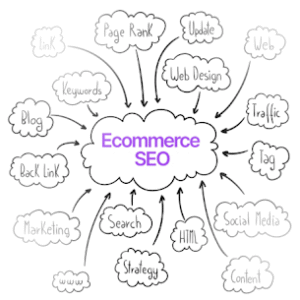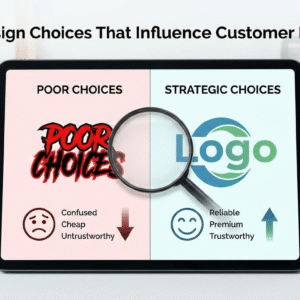A website SEO score cheaker tool is an important measure of how well your site is optimized for search engines and users. Low scores can indicate technical problems, poor content, or structural issues that prevent your site from ranking effectively. Understanding the common SEO issues that lower your website score can help you prioritize fixes and improve your search performance.
1. Slow Page Speed
Page speed is a critical factor in SEO scoring. Slow-loading pages frustrate users, increase bounce rates, and negatively affect search engine rankings. Common causes include unoptimized images, excessive JavaScript or CSS, and poor hosting performance. Improving load times through compression, caching, and content delivery networks can significantly boost your website score.
2. Missing or Duplicate Meta Tags
Title tags and meta descriptions play a key role in helping search engines understand your content. Missing, duplicate, or poorly optimized tags reduce visibility and click-through rates. Each page should have a unique, descriptive title and meta description that includes relevant keywords and accurately reflects the page content.
3. Thin or Low-Quality Content
Pages with little valuable content or content that doesn’t address user intent can harm your SEO score. Thin content fails to satisfy search queries, while duplicate content can confuse search engines. Improving content depth, updating old pages, and ensuring originality are essential for a strong SEO score.
4. Broken Links
Internal and external broken links negatively affect both user experience and search engine crawlability. They signal poor website maintenance and reduce trust. Regular audits to identify and fix broken links or redirect them properly are crucial for maintaining a healthy website score.
5. Poor Mobile Optimization
With mobile-first indexing, a website that is not mobile-friendly will perform poorly in SEO scoring. Issues include unresponsive design, small text, hard-to-click buttons, and improper display on mobile devices. Using a responsive layout and testing mobile usability can improve your score and user experience.
6. Missing Alt Text on Images
Alt text is important for accessibility and image search optimization. Pages with images that lack descriptive alt text lose SEO value and can affect overall score. Ensure every image has meaningful alt text that reflects the content and includes relevant keywords where appropriate.
7. Weak Internal Linking Structure
A poor internal linking strategy can prevent search engines from understanding site hierarchy and distributing link authority effectively. Orphan pages, excessive or irrelevant links, and missing anchor text reduce SEO score. Building logical internal links with descriptive anchor text helps both crawlers and users navigate your site.
8. Technical SEO Errors
Technical issues such as incorrect robots.txt settings, missing XML sitemaps, 404 errors, or improperly implemented canonical tags can lower your SEO score. These issues affect how search engines crawl and index your website, which directly impacts rankings. Regular technical audits are essential to detect and fix these errors.
9. Unsecured Website (No HTTPS)
Security is a ranking factor in SEO. Websites without HTTPS are considered less trustworthy by users and search engines. Ensuring your site is fully secured with a valid SSL certificate can improve your website score and user confidence.
10. Poor URL Structure
Non-descriptive, long, or inconsistent URLs can confuse both users and search engines. URLs should be short, keyword-rich, and logically structured according to site hierarchy. Clear and organized URLs contribute positively to SEO scoring and usability.
11. Low-Quality or Spammy Backlinks
Backlinks are crucial for authority, but low-quality or spammy links can harm your website score. Links from irrelevant or untrusted sources may trigger penalties. Focus on earning high-quality, relevant backlinks and regularly audit your link profile to remove toxic links.
12. Lack of Schema Markup
Structured data helps search engines understand the content on your pages. Without schema markup, your pages may miss out on rich snippets, which can reduce visibility and click-through rates. Implementing proper schema types for articles, products, or FAQs enhances SEO performance.
13. High Bounce Rates and Low Engagement
User behavior metrics like bounce rate, session duration, and page interactions impact SEO indirectly. High bounce rates or low engagement indicate that users are not finding your content valuable, which can lower your website score. Improving content quality, readability, and user experience can help reduce these issues.
14. Overuse or Misuse of Keywords
Keyword stuffing or over-optimization can harm your SEO score. Search engines penalize pages that unnaturally repeat keywords. Focus on natural usage of primary and secondary keywords, and include related terms to improve relevance without compromising readability.
15. Duplicate Content Issues
Duplicate content across your site or from other websites can confuse search engines about which page to rank. This can lower your SEO score and dilute authority. Use canonical tags, consolidate similar content, and ensure originality to prevent duplicate content problems.
Conclusion
A variety of common SEO issues can negatively impact your website score, from slow page speed and missing meta tags to technical errors and low-quality content. Regular audits using a website SEO score checker tool can help identify these problems, prioritize fixes, and monitor progress over time.
Addressing these issues systematically will improve your SEO score, increase organic traffic, and enhance user experience. Infiniti Digital, the best SEO agency in the USA, can provide expert analysis and actionable strategies to resolve these common SEO issues and boost your website performance.





